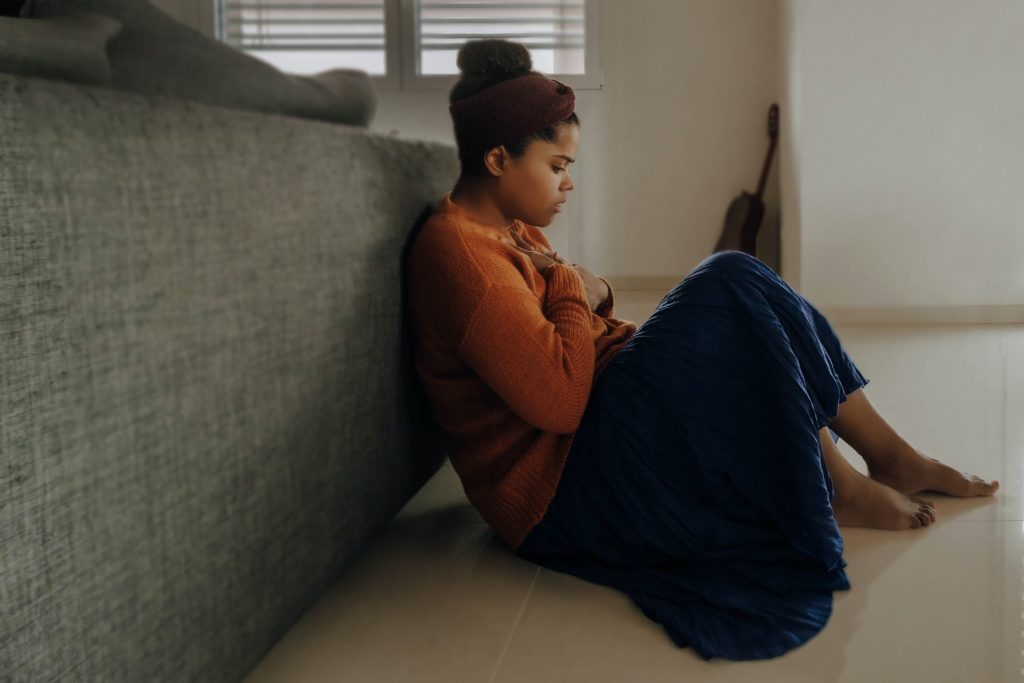What is Anxiety?
Anxiety is a natural and normal human emotion that everyone experiences from time to time. It is often described as a feeling of unease, fear, worry, or apprehension about future events or situations. Occasional symptoms is a common response to stress or challenges and can even be helpful as it prepares us to deal with potential threats or dangers.
However, it can become problematic when it is excessive, persistent, and interferes with daily life. For some individuals, feeling anxious may occur more frequently, intensely, or in situations that others might not find distressing. When dealing with anxiety becomes overwhelming and difficult to control it can be a sign that you could benefit from professional help and counselling.
Signs and Symptoms of Anxiety:
- Excessive worry or fear
- Restlessness or feeling on edge
- Rapid heartbeat or palpitations
- Sweating and trembling
- Difficulty concentrating
- Sleep disturbances
- Avoidance of certain situations or activities
Coping Strategies
- Breathing Exercises: Practice deep breathing relaxation techniques to help calm the mind and body during heightened moments.
- Mindfulness and Meditation: Engage in mindfulness practices to stay present and reduce anxious thoughts.
- Physical Exercise: Regular physical activity can release endorphins and reduce stress to manage physical symptoms of a mood disorder.
- Talk Therapy: Consider counselling or therapy sessions with our experienced professionals to explore the root causes and develop coping mechanisms. Cognitive Behavioural Therapy and Dialectical Behavioural Therapy are both evidence based therapies that are shown to help decrease and manage anxiety symptoms.
- Body-Based Therapy: Using body based strategies and trauma processing therapies like EMDR, IFS, somatic therapy and art therapy can help process and reduce the anxiety in your body
- Support Network: Connect with friends, family, or support groups to share your feelings and experiences.


Is it Anxiety or am I just Anxious?
Anxiety is a feeling and is often used interchangeably with anxiousness; however, though they have similarities in symptoms, they differ in strength and persistence. It is important to note that feeling stressed or worried occasionally does not necessarily mean you have an anxiety disorder. Feeling anxious is a natural and universal human response to different experiences.
Feeling worried can be a helpful emotion, even if it’s not necessarily enjoyable to experience. Typically, it is used to help you anticipate harmful events and activate your fight, flight, or freeze, which is the body’s automatic built-in system designed to protect us from threat or danger.
How can Counselling Help me with anxiety?
Counselling can be a highly effective treatment option for individuals dealing with these overwhelming feelings Here are several ways in which counselling can help:
- Understanding and Awareness: A counsellor can help you understand the root causes of your feelings and reactions. Often, anxiety is linked to past experiences, thought patterns, or unresolved issues. By exploring these factors, you can gain insight into why you feel anxious and begin to address the underlying issues.
- Coping Strategies: Counselors can teach you practical coping strategies to manage your feelings. These may include relaxation techniques, deep breathing exercises, mindfulness, and stress management skills. Learning these tools can empower you to deal with anxiety in your daily life. Counselling can also help you tailor the coping strategies that you have learned elsewhere to your own individual needs.
- Challenging Negative Thought Patterns: Part of dealing with feeling overwhelmed can include having distorted or negative thought patterns. This is referred to as “black or white thinking” or “all or nothing feelings”. A counsellor can help you identify which thought patterns anxiety is connected to, and work on challenging them with you. They can provide an objective perspective that helps you replace irrational or negative thoughts with more realistic and positive ones.
- Exposure Therapy: For specific phobias or anxiety disorders like social anxiety, exposure therapy is effective. A counsellor can gradually expose you to the situations or objects that trigger these feelings in a controlled and supportive environment. Over time, this can desensitize you to your triggers.
- Emotional Support: Counselling provides a safe and non-judgmental space to express your thoughts and emotions. Sometimes, simply talking to a trained professional can provide immense relief and help you feel understood and validated.
- Behavioural Interventions: Behavioural therapy techniques can be used to modify behaviours that contribute to anxiety. This may include addressing avoidance behaviours or unhealthy coping mechanisms.
- Medication Evaluation: In some cases, a counsellor may work with a psychiatrist or a doctor to evaluate whether medication could be beneficial for managing severe anxiety. Medication can be used in conjunction with counselling or as a standalone treatment. Counsellors cannot prescribe medication in Canada, however, they can provide psychoeducation about medication in general and support you in speaking with a doctor.
- Stress Management: Anxiety often worsens in response to stress. Counselling can help you develop effective stress management strategies, such as time management, problem-solving skills, and setting realistic goals.
- Goal Setting and Self-Empowerment: Counseling can help you set and work towards specific goals for managing these feelings. This can include improving self-esteem, enhancing communication skills, or making lifestyle changes to reduce stress.
- Prevention & Maintenance: Once you’ve made progress in managing your anxiety counselling can help you develop strategies to prevent panic attacks and triggers in the future. It’s important to maintain the skills and insights gained during therapy, and even if you don’t need to go to therapy as often as before, you can use counselling as a space to do preventative maintenance work and check-in on your mental health before it gets out of control again.
It’s essential to find a counsellor or therapist who specializes in treating anxiety or related disorders and who you feel comfortable working with. The specific approach to counselling may vary depending on your individual needs and the type of anxiety you’re experiencing. Remember that treatment often takes time, and it’s important to be patient and consistent in attending sessions and practicing the techniques you learn.
Anxiety Therapy and Counselling Can Support You
If you find that your feelings of anxiety are persistent, excessive, and interfering with your daily life, we can support you. At Haven Wellness Collective, we are here to provide guidance, understanding, and personalized treatment plans to help you navigate your mental health and find a sense of calm and well-being.
Remember, there is no need to face stress, difficulties, and issues alone; we are here to walk with you on your journey towards healing and growth. Reach out to us today to schedule a counselling session or learn more about our support services. Lynn, Sandy, Kate & Amy are all trained in treating anxiety and would love to support you.

